Two of the five candidates are clearly ahead in the fundraising race ahead of the Aug. 4 election, but voters indicate they’re looking for the person who can beat U.S. Rep. Sharice Davids in the fall.
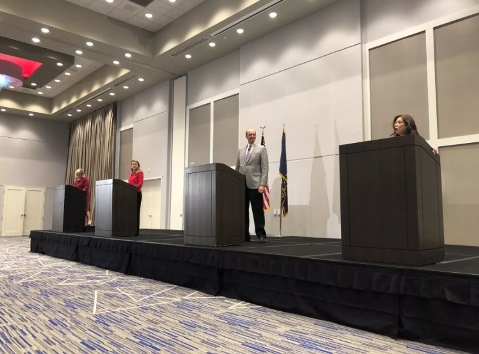
by Aviva Okeson-Haberman, Kansas News Service
A global pandemic and protests over police brutality have helped shape the message and direction of the crowded Republican primary in Kansas’ 3rd Congressional District.
While the five candidates are still talking about issues like health care and the national debt, they’re also now fielding questions about the role of the federal government in a public health crisis and their support for law enforcement.
Though Amanda Adkins and Sara Hart Weir have a clear fundraising advantage in the Aug. 4 GOP primary, they still lag behind the woman they’re trying to unseat, Democratic U.S. Rep. Sharice Davids. Plus, Adkins’ and Weir’s money hasn’t stopped some voters from coalescing behind the other candidates: Mike Beehler, Adrienne Vallejo Foster and Tom Love.
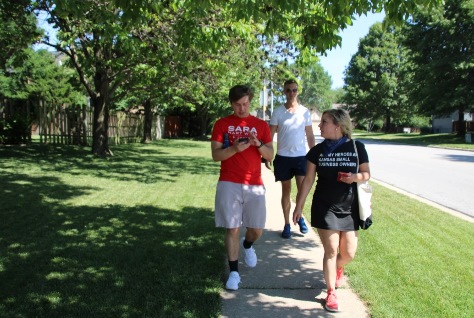
Policing in the spotlight
Policing and fiscal conservatism are the two key issues shaping Henry E. Lyons’ vote. The real estate developer and president of the Olathe, Overland Park, Leawood NAACP describes himself as an independent who is “leaning more toward the Republican side.”
The question of policing resurfaced in May, after George Floyd, a Black man, died after a Minneapolis police officer kneeled on his neck for several minutes. His death and others led to weeks of protests over racist policing tactics and calls for cities to pull back on heavily funding police departments. Close to home, Kansas City, Missouri, is looking to regain local control of its department from the state.
Lyons, who plans to vote for former Roeland Park Mayor Foster, said “there are some bad apples as there are in any business, but I don’t think (the police) should be defunded.”
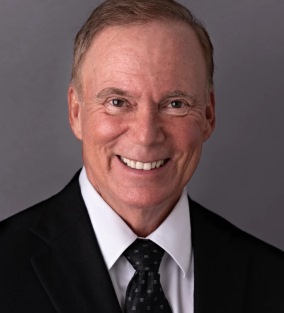
Earlier this month, all candidates but Love participated in a debate sponsored by the Johnston County GOP debate. And each candidate said they support law enforcement officers and do not want to defund the police.
“I call 911, I want lights and sirens coming to my house,” Beehler said to applause.
Both Foster and Weir support additional training for police officers. Adkins said while a “strong police force is part of a vibrant community,” Republicans should also talk about the “importance of supporting the Black community.”
“I think that sometimes Republicans don’t comment on that enough,” Adkins said. “I think we should stand with Black businesses. I think we should stand with Black families.”
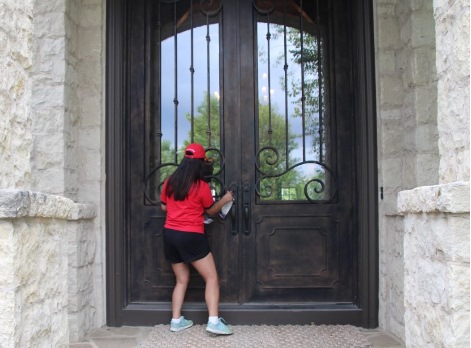
The money
Fundraising is a key metric for the general election, since Davids has almost $2.5 million to spend already. The only 3rd District GOP candidate yet to report any fundraising is Tom Love, a real estate investor and former state lawmaker.
By the end of June, Adkins had raised more than $900,000 and had more than half a million left in the bank. She also has the support of a super PAC that has run ads attacking Weir for working for former Kansas Democratic Congressman Dennis Moore in 2004. The ads, which also portray Adkins as a “real Republican,” are funded primarily by Adkins’ father.
During a July debate, both Weir and Foster criticized Adkins for her father’s involvement.
“If my father were alive today, he would say, ‘Mija, if I had a hundred thousand dollars, I wouldn’t give it to you to try to win a race,” said Foster, who as a Latina is the only candidate of color in the GOP primary. “I taught you how to earn your own way.’”
Weir also went after Adkins for donating to Cerner’s PAC while she was an employee. That PAC has donated to lawmakers on both sides of the aisle and the state line, including Missouri Democratic Rep. Emanuel Cleaver and Missouri Republican Rep. Vicky Hartzler.
“Your funneling of money to these liberal Democrats … goes against everything that we stand for as conservative Republicans,” Weir said.
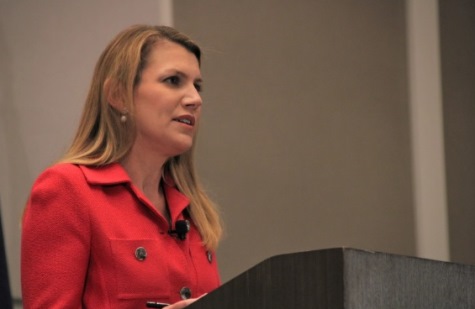
Adkins responded by noting she chaired the Kansas Republican Party for four years during the Sam Brownback administration and cofounded The Eisenhower Series, which encourages Republican women to run for office.
“The business that she is attacking is Cerner Corporation,” Adkins said, calling her large former employer “one of the best examples of innovation here in the Kansas City community.”
Marty Oehmler attended the debate and said afterward that he isn’t interested in the fights among candidates. He wants to hear more about how they’ll help businesses and where they stand on gun rights.
“I’m not interested in attacking each other. I’m more interested on what the issues are, how are we going to solve the issues?”
Oehmler said he hasn’t decided who he’ll support, but he likes Foster and former Burns and McDonnell vice president Beehler.
Economic and electability issues
In late June, at the first Miami County GOP meeting since the pandemic began, Beehler told the crowd of about 20 at a Louisburg restaurant that he thinks Republicans will take the 3rd District seat back on the “coattails of Donald Trump.”
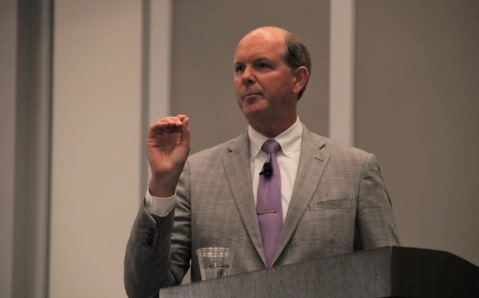
Beehler is pushing spending on infrastructure as the solution to economic recovery.
“Post-COVID-19, it looks like we’re going to spend $2 trillion dollars on the construction,” Beehler said. “So what a great opportunity to elect a United States Congressman that’s got a civil engineering degree and has been very successful in business.”
Foster during the debate criticized Beehler’s plan as too costly, and said she wouldn’t vote for additional coronavirus relief that gives money to “state, local or municipalities for the bad businesses practices that they’ve incurred.”
Meanwhile, Adkins told the debate audience she supports a payroll tax holiday to help businesses weather the financial effect of the virus. Her coronavirus response plan includes increasing testing and making sure health care providers aren’t reliant on a medical supply chain solely in China.
The desire to “rebuild our economy” is something Weir said she’s also hearing from voters. On a sunny Saturday morning in July, the former president and CEO of the National Down Syndrome Society crisscrossed an Olathe subdivision, knocking on doors and listening to Republican voters like Valeria Edwards.
“It’s the term limits and people in the Swamp and people who’ve been there too long, like hello … we need fresh faces,” Edwards told Weir.
Weir responded that she supports term limits and described herself as a political outsider with a track record of “actually getting things done.”
But, like in the contested U.S. Senate primary race in Kansas, it’s electability that some voters are looking for in a candidate to represent Johnson and Wyandotte counties, and a slice of Miami County.
Alex Dwyer, 23, is one of the voters still mulling his choices, though he’s narrowed it down to Foster and Adkins.
“I think there’s a couple of candidates who should recuse themselves and step down from the race to allow the two main contenders to go at it,” Dwyer said. “… This is a competitive race for the seat. And electability should be highly considered in a candidate.”
[Note: If you want to hear more about where the candidates stand on important issues, join KCUR for a Facebook Live forum with the candidates 7:30 p.m. Thursday. You can also read KCUR’s voter’s guide.]
Aviva Okeson-Haberman is the Missouri government and politics reporter at KCUR 89.3. Email her at aviva@kcur.org.
The Kansas News Service is a collaboration of KCUR, Kansas Public Radio, KMUW and High Plains Public Radio focused on health, the social determinants of health and their connection to public policy. Kansas News Service stories and photos may be republished by news media at no cost with proper attribution and a link to ksnewsservice.org.
See more at www.kcur.org/politics-elections-and-government/2020-07-22/the-crowded-field-for-kansas-3rd-district-charging-toward-gop-primary-with-a-focus-on-issues-money
